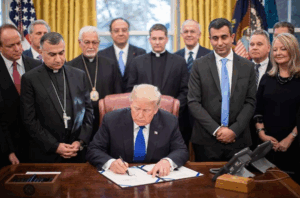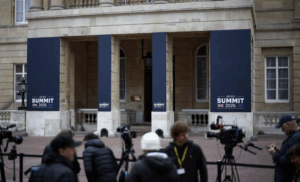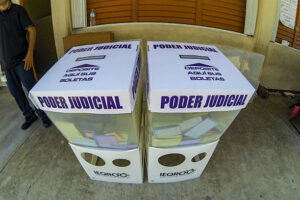AN UNDERREPRESENTED AFRICA SINCE 1972
In 1972, the convention for the protection of cultural and natural heritage worldwide was adopted. It establishes a list of World Heritage sites, which comprises sites considered to have exceptional value. Five years later, this instrument came into effect, with 12 sites initially listed, including three African sites. However, this classification can evoke political, geopolitical, and economic tensions, reflecting North-South imbalances. Africa is severely underrepresented on the World Heritage list, accounting for less than 10% of the total sites. As of now, the World Heritage List acknowledges 113 sites in Africa, with 21 listed as « endangered » on the continent.
AFRICA AS A PRIORITY : A MAJOR FOCUS OF THE 45TH WORLD HERITAGE SESSION
From September 10th to 25th, 2023, the 45th session of the World Heritage was held in Riyadh, Kingdom of Saudi Arabia. The objective of these sessions was to identify culturally and naturally exceptional sites with the aim of ensuring their protection. Preserving endangered heritages was also a central concern. This year, the heritage committee was composed of representatives from 21 States. These parties to the Convention, include South Africa, the Russian Federation, and Nigeria.
As part of the Priority Africa project, several challenges related to heritage in Africa were presented during this session:
- The representativity of African heritage on the World Heritage list
- The removal of African sites from the endangered list.
- Strengthening the knowledge of African experts.
- Engagement of youth and women.
- Promoting the use of digital and innovative technologies.
- Involvement of local communities.
THE REGISTRATION OF NEW AFRICAN SITES : A SIGNIFICANT RESPONSE
To address these various challenges, the World Heritage Committee took a significant step this year with the inclusion of 8 new sites into UNESCO’s World Heritage.
| New World Heritage Properties | Property Location |
| The Gedeo Cultural Landscape | Ethiopia |
| Djerba: Testimony to a settlement pattern in an island territory | Tunisia |
| Koutammakou, the Land of the Batammariba | Benin |
| Memorial sites of the Genocide: Nyamata, Murambi, Gisozi and Bisesero | Rwanda |
| Forest Massif of Odzala-Kokoua | Congo |
| Bale Mountains National Park | Ethiopia |
| Andrefana Dry Forests | Madagascar |
| Nyungwe National Park | Rwanda |
This strategy to increase the presence of African heritage on the World Heritage List also involves the renovation of certain sites. Recently, the removal of the « Tombs of the Bugunda King » in Kasubi, Uganda, from the endangered World Heritage list marks a new era for Africa.
UNESCO’S RECOGNITION: A VITAL ASSET FOR THE CONTINENT AND ITS APPEAL
While the 2020 report from the International Union for Conservation of Nature alerted to the threat of climate change to one-third of natural World Heritage sites, UNESCO’s recognition can be crucial in combating threats related to human activities, such as poaching, illegal logging, agricultural encroachment, and armed conflicts. « If we go to Central Africa, Virunga National Park in the Democratic Republic of Congo faces various threats. However, due to the UNESCO label, the attention of the international community is drawn. Thus,the protection of this iconic African heritage site can be shared as a concern by the international community, reducing the detrimental effect of rebel groups, » notes Souayibou Varissou.
Moreover, the recognition of the « outstanding universal value » of these sites is an economic asset, affirms the executive director of the African World Heritage Fund. According to him, « the act of inscription is recognition, but it is also a tool for development and sustainable tourism. There are many examples on the continent where being listed on the World Heritage has generated more visits from local and international tourists. This has been able to stimulate the development of infrastructure.” Local communities are affected by the positive outcomes of the inscription, but more efforts are needed. « It is never enough, » notes Souayibou Varissou.










